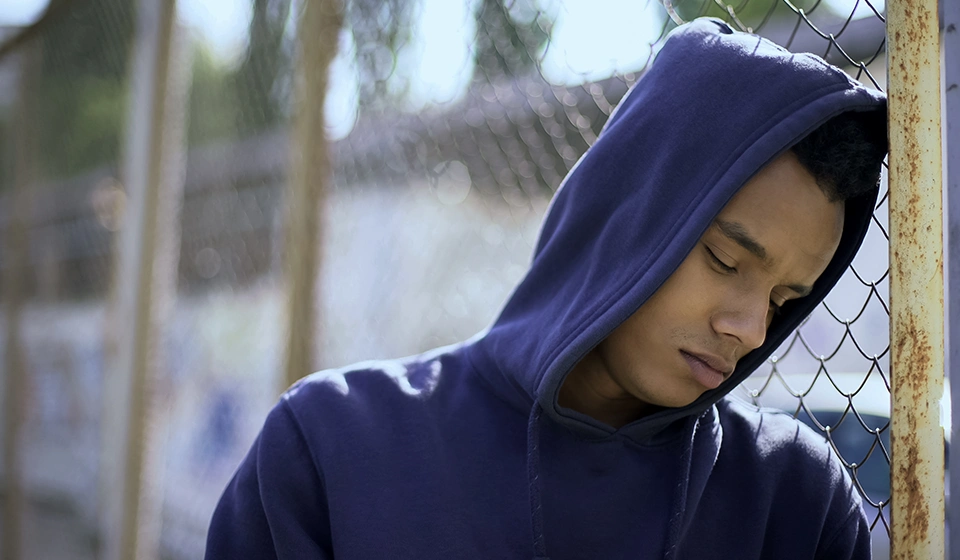DEPARTMENT OF JUVENILE JUSTICE
In 2005, The Illinois Justice Project (then part of Chicago Metropolis 2020) along with other advocate groups, worked to separate the Youth Division from the adult functions of the Illinois Department of Corrections and to create a new Illinois Department of Juvenile Justice (IDJJ). After about 18 months of policy design and work with the General Assembly and the Governor’s Office, the new IDJJ was created.
For the past two decades, policymakers from both political parties in Illinois have worked together to reform the juvenile justice system. Guided by the results of research on adolescent brain development and recommendations of national experts emphasizing the importance of providing ways to change behaviors of youth in their home communities, Illinois enacted policies and programs that has greatly reduced the number of youth held in state prisons.
Juvenile Redeploy
One of the programs responsible for the drop in juvenile prison population is Juvenile Redeploy Illinois. ILJP participates on the board of Juvenile Redeploy Illinois and helped to established it in 2005. Redeploy Illinois provides a financial incentive to local governments to provide treatment and services for juveniles at the local level and offers an alternative to commitment to a state juvenile prison. The services provided include case management, education assistance, counseling and crisis intervention as determined through an individual needs assessment. ILJP continues to partner with system decision-makers and advocate for the expansion of program sites state-wide, including the establishment of a Redeploy program in Cook County.
The Redeploy Illinois Oversight Board (RIOB) prepares a report to the Governor and the General Assembly on the progress of Redeploy Illinois. These services resulted in 1,793 fewer youth being committed to IDJJ over the program’s first nine years and saving Illinois taxpayers millions of dollars in unnecessary incarceration costs.

Thanks to the Redeploy Illinois program, commitments to the Department of Juvenile Justice have been reduced by 53%, resulting in $88 million cost avoidance for the state of Illinois. St. Clair County reduced prison commitments from 86 to 11 in its first year participating in the program.

After Florida’s Miami–Dade County limited shackling, more than 20,000 youth appeared in court without shackles between the years 2006 and 2011. During that period, no child escaped, nor were any court personnel harmed in an escape attempt.
Youth Shackling
ILJP organized a coalition of advocates successfully arguing for a new Illinois Supreme Court rule banning the indiscriminate shackling of youth in juvenile court. ILJP worked with the Illinois Supreme Court Rules Committee and other experts and partners to develop the appropriate language that strikes a balance between judicial discretion and the need to limit the unnecessary trauma that shackling of youth causes. Courts still retain the right to shackle a youth if necessary to maintain safety, but that can only be done after holding a hearing to make that determination. The rule went into effect on November 1, 2016, and ILJP has been monitoring the implementation of the rule and working with the Administrative Office of the Illinois Courts to assess the results of statewide compliance.
Resources
FWD.us and The Center for Just Journalism Publish Recommendations for Reducing Bias Against People Impacted by the Criminal Justice System.
Messaging Guide: Countering “Tough on Crime” Rhetoric with a “Serious About Safety” Frame. National, Statewide, and Local messaging research.
The Justice, Equity, and Opportunity (JEO) Initiative convened a group of subject-matter experts to advance Illinois’ adoption of a more trauma-informed and healing-centered justice system.
Reallocating state resources to develop more effective, less expensive community-based alternatives to incarceration and improve access to interventions that reduce crime.
EJP’s Reentry Resource Program publishes three reentry guides.
This site provides information on programs, processes, and resources available to returning residents and their families that may support a successful re-entry.
Redeploy Illinois seeks to decrease youth incarceration in Department of Juvenile Justice through evidence-based community programs that maintain public safety and promote positive outcomes for youth.
Justice Divided is an educational tool and resource repository meant to promote awareness of disproportionate minority contact (DMC), or the overrepresentation of black youth in the juvenile justice system.
An advisory group responsible for administering federal juvenile justice grants, ensuring compliance with the Juvenile Justice and Delinquency Prevention Act, and advising the Governor and General Assembly on matters of juvenile justice.






